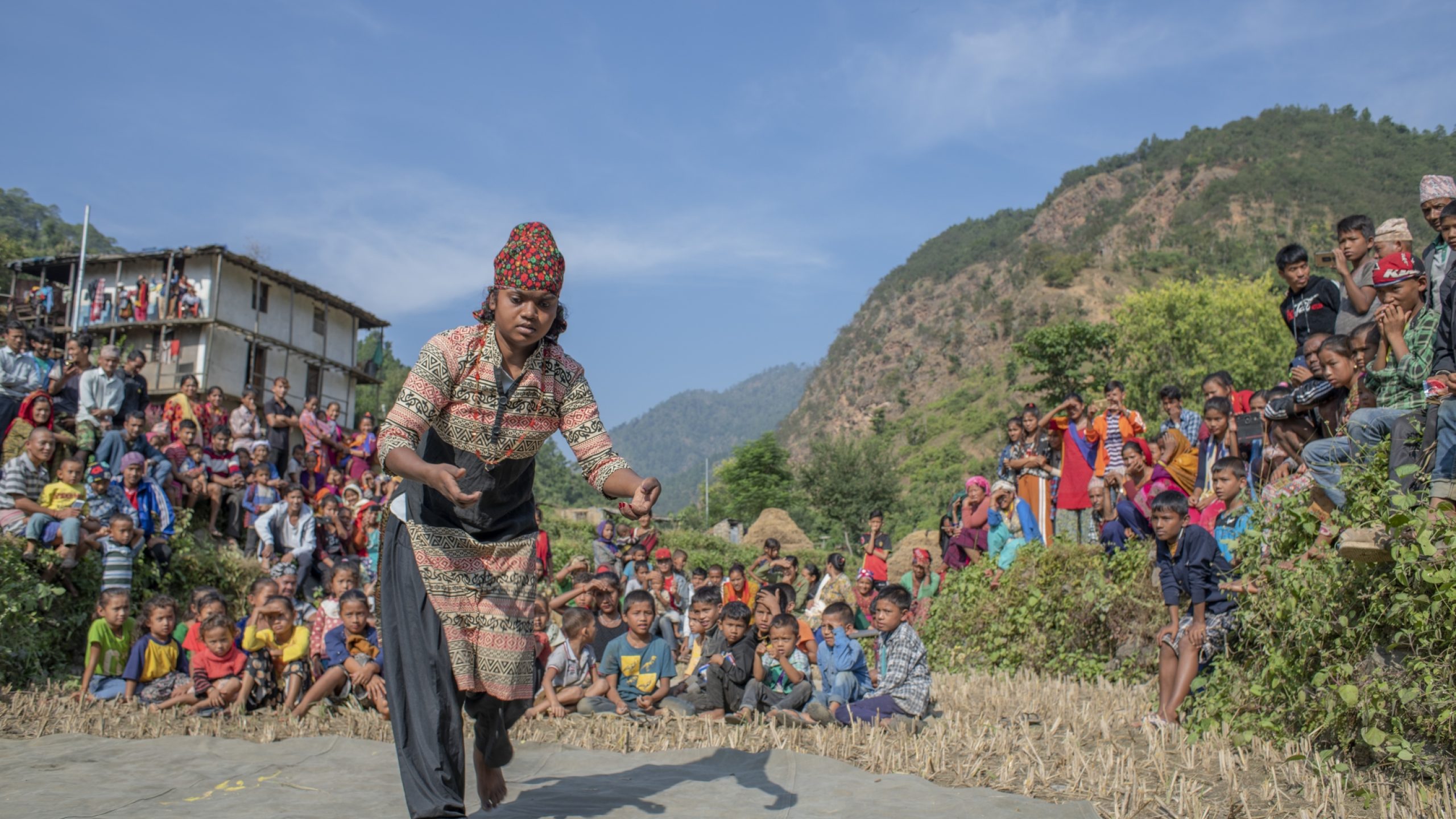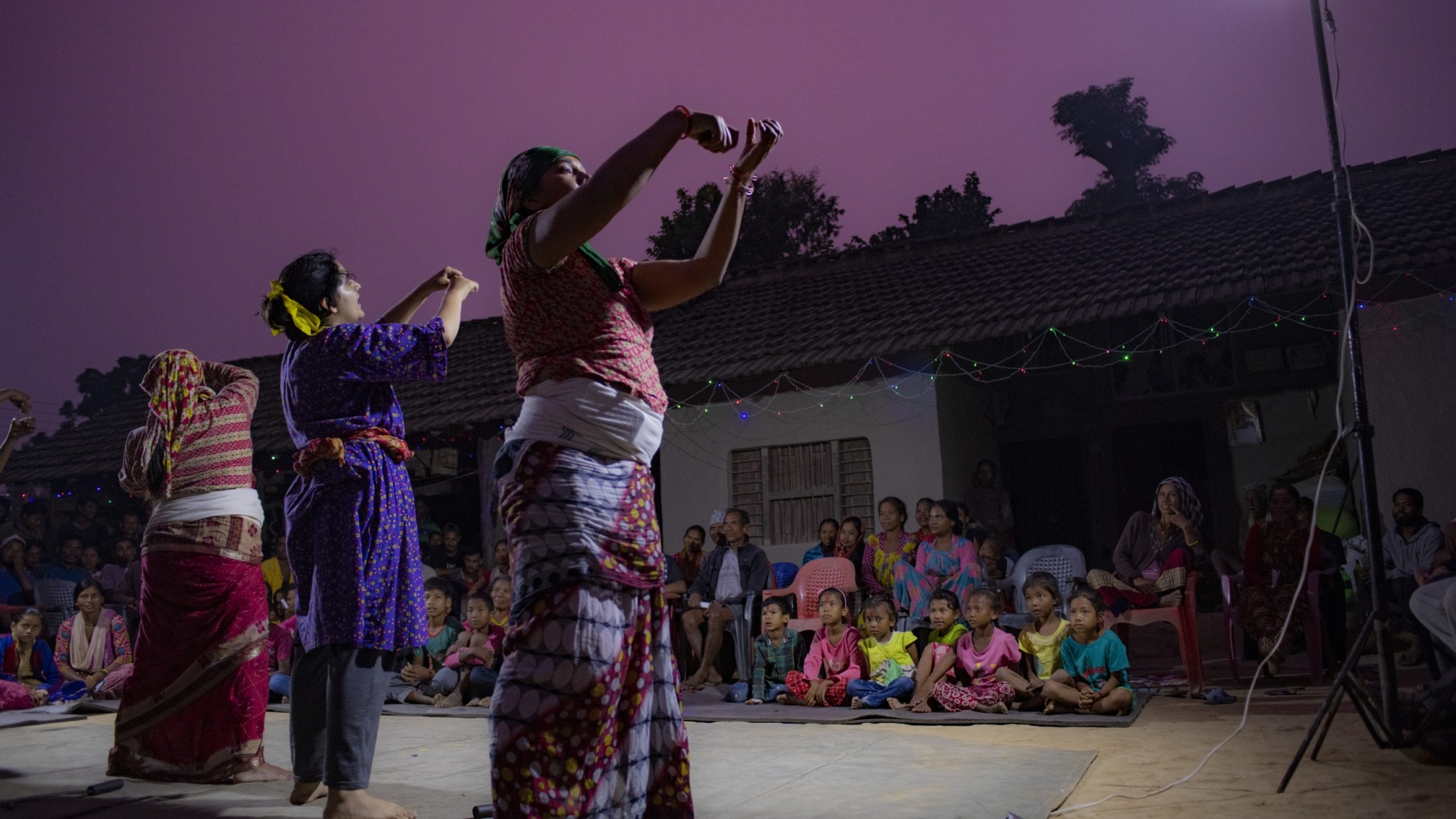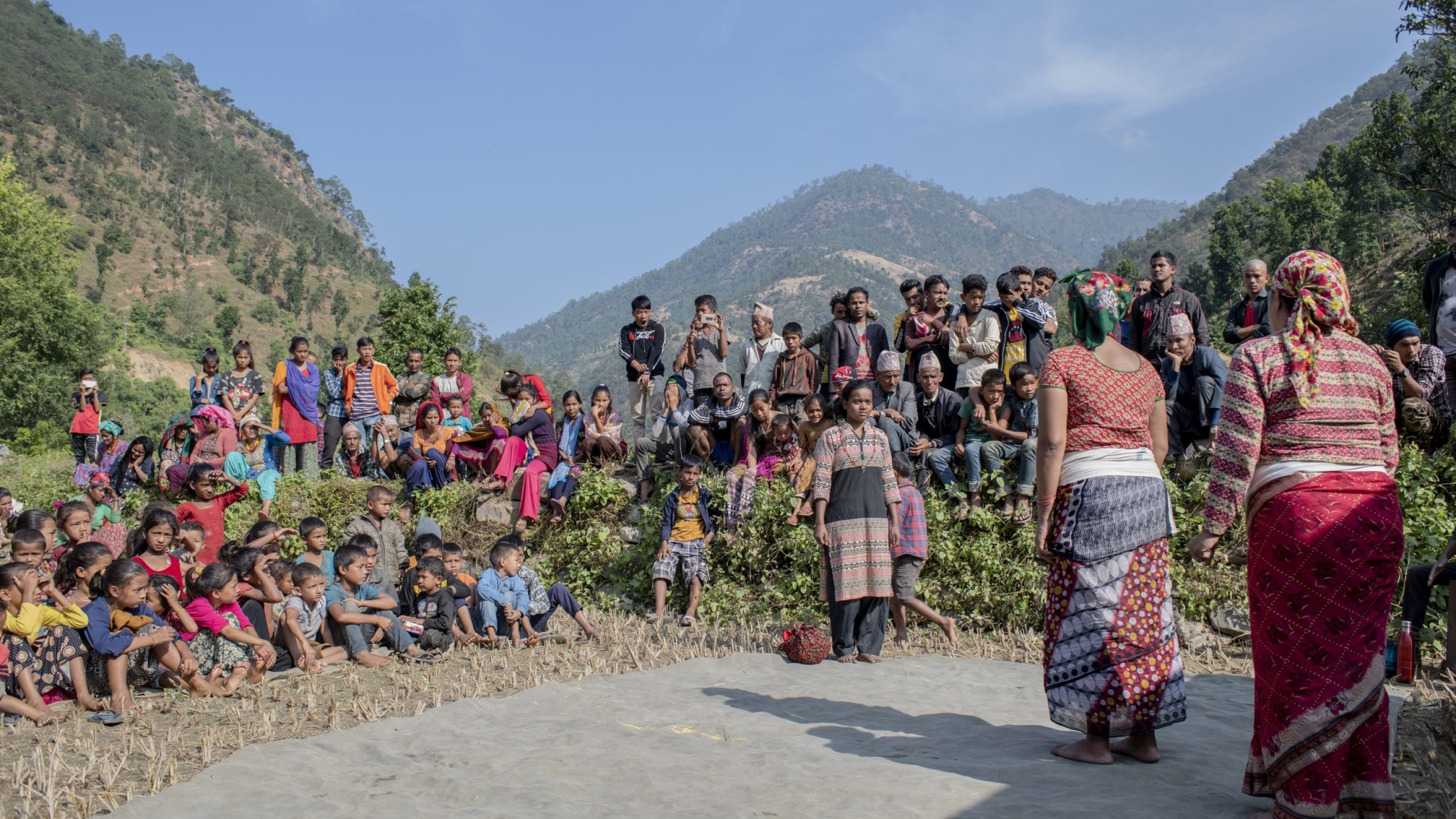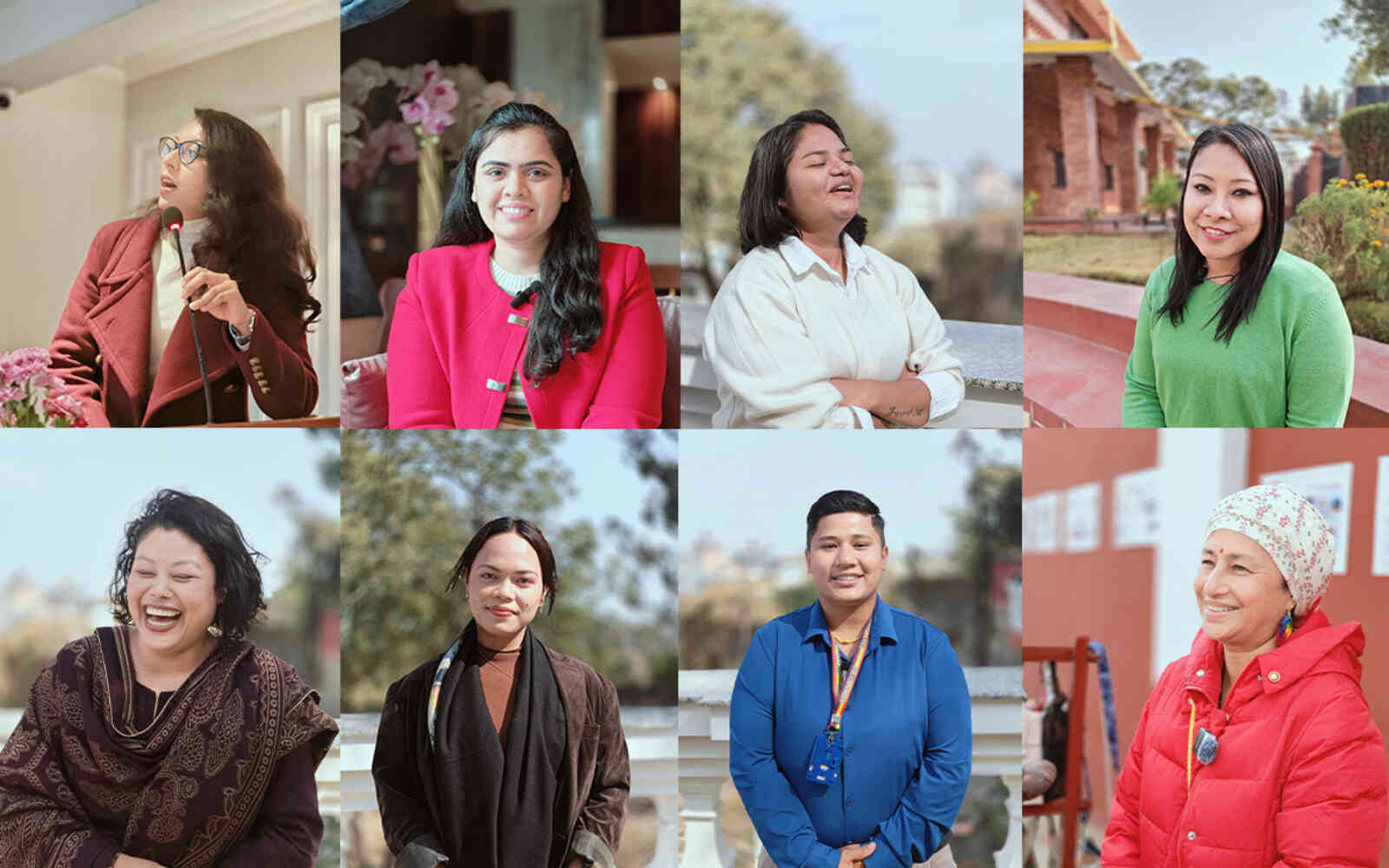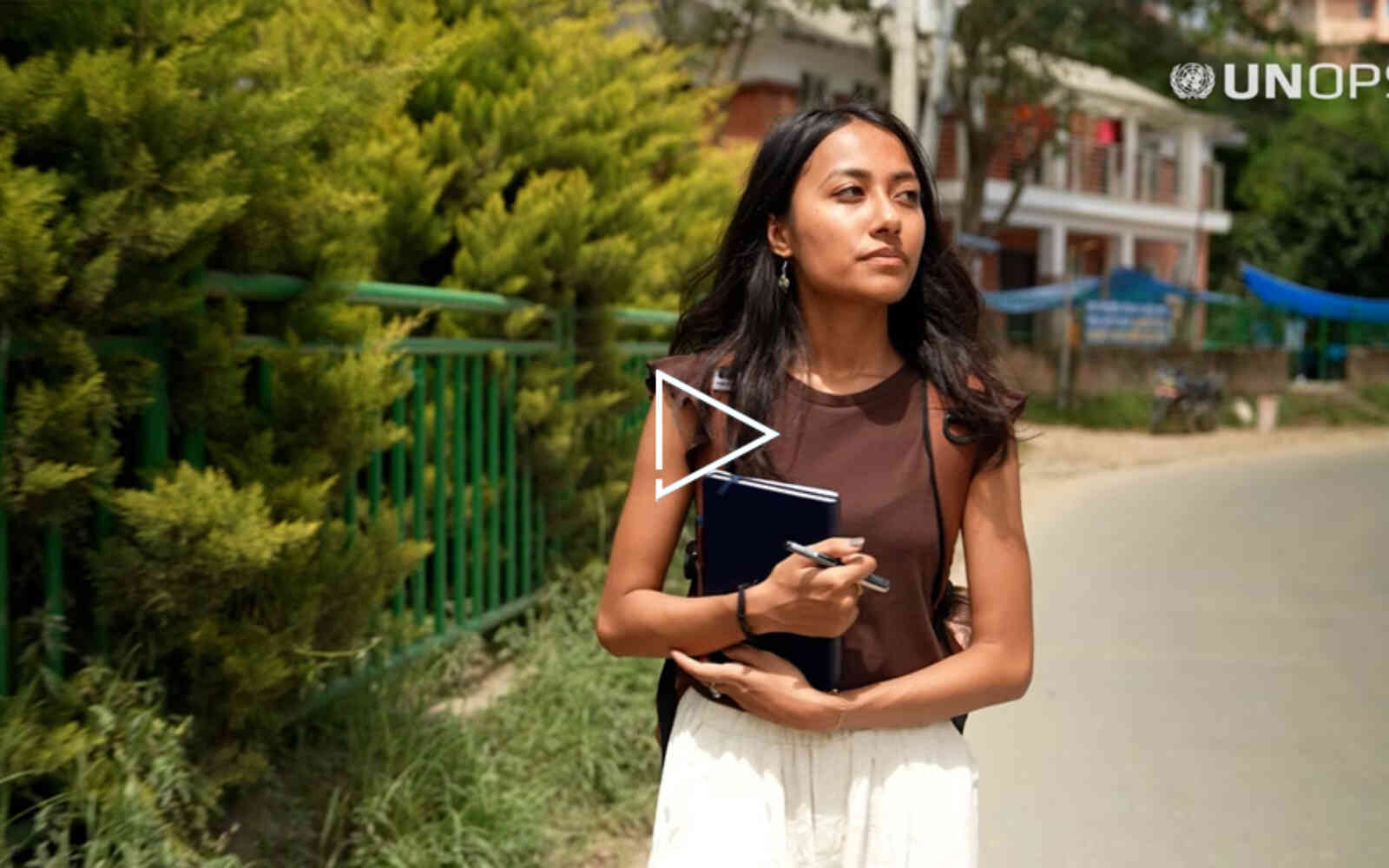The United Nations Office for Project Services (UNOPS)

Bringing positive change through the power of theatre
A travelling theatre group helped remote communities in Nepal come together to talk about gender discrimination, violence and access to justice.
The earthquake and subsequent aftershocks that rocked Nepal in April and May 2015 left the Himalayan nation of Nepal devastated. Almost 9,000 people were killed, more than 20,000 were injured, and the cost of damage to the country's infrastructure is estimated to be close to $10 billion – nearly half of Nepal’s gross domestic product that year.
Since then, following the initial humanitarian response, the country has undertaken a massive rebuilding exercise – with schools, houses and entire communities raised from the rubble through a range of new and existing development projects.
A UNOPS team working on the ‘Modernization and improvement of policing project’ (MIPP) – funded by the United Kingdom’s Foreign, Commonwealth and Development Office (FCDO) had the task of strengthening access to security and justice for the most vulnerable people, by improving police services and building 58 police stations across Nepal.
As part of the construction process, the project team engaged with local communities, especially women, to discuss the hurdles they faced when accessing security and justice – it was important to ensure that the various services provided by the police at these facilities would be utilized and sustained.




In almost every community the same issues were prevalent: child marriage; domestic violence; and many women feeling anger and frustration at the lack of opportunities available to them to access security and justice. Many women also explained that they were not able to express their fears of these issues due the seemingly unquestionable social norms that exist in their society.
It also became clear that women in rural communities very often were not confident that the enhanced police and justice system could help bring positive change to their situation.

To address this, in early 2019, UNOPS and its partners devised an innovative activity that would invite all members of the affected rural communities, including members of the police and justice system, to come together and open a shared dialogue about the social norms that condone discrimination and violence against women. It was also aimed at the police and justice service to encourage them to think about the social norms and associated beliefs that influence the delivery of their work.
The solution to achieve this was unconventional: a travelling theatre show. After a tendering process was complete, Kathmandu-based Shilpee Theatre Group – its name inspired by the sanskrit word for ‘artists’ – was selected to develop a play. The drama would adopt a participatory approach – also known as ‘forum theatre’ – which explores real life scenarios through a dialogue between the audience and the stage. Community members would be encouraged to participate in the performance, and then provide solutions for the problems faced by characters in the drama tailored to their particular context.
Normally we do not bid for work like this – but this felt right. We had the artistic freedom to still make it our own, while at the same time receiving the support and guidance from UNOPS when it was needed.
Ghimire and his team quickly got to work on the story and the production of the theatre play, receiving regular feedback from UNOPS and other stakeholders. UNOPS also coordinated experts to provide critical feedback on the main themes that the play would explore: domestic violence, child marriage, gambling and alcohol abuse, and the local avenues available to them to find solution to these problems.




After three months of preparations, the show – titled Kalpana ra Urmila Dukha Ma chan (meaning ‘Kalpana and Urmila are suffering’) – was ready. The opening night of the show was performed at Shilpee’s own theatre hall, Gothale, named after the famous Nepalese playwright, Govinda Gothale. The first show was well received and earned positive reviews from journalists in attendance. The Gothale theatre itself was the perfect venue for the new show as the whole building had been built by the local community through donations of bricks. Their campaign ‘Donate a brick, see a theatre rise’ attracted 70,000 brick donations which actors and playwrights then used to build their own theatre by hand over 10 months.
Now it was time to take the show on the road. The planning of the tour was simple: reach 33 communities where a new police station was being built as part of the broader project.
Putting the plan into practice, however, would prove far more difficult. The mountainous terrain and often poor road infrastructure made for a challenging journey for the touring theatre team – which comprised 15 people, including 12 actors.
“These were very difficult places to reach. The condition of the roads was not great, especially for our vehicle, a minibus,” recalls Ghimire, who also served as the show’s narrator.

The tour began in Birendranagar, in Nepal’s Surkhet district. From there it continued throughout the country’s far west, performing to mostly Nepalese-speaking communities, before heading into some of Nepal’s most remote towns and villages. Later, the show was taken to the far eastern and southern plains of Nepal, where the Tharu and Maithili languages were adopted into the show.
Many times we had to stop far away from the village we were travelling to and finish on foot – carrying all our equipment on our backs for up to an hour. This included a generator and our lighting equipment. We then had to carry everything back once we were done.
Due to the road infrastructure being so unreliable, travelling vehicles were a rare sight in the mountainous communities. So to welcome a theatre group from the city at the same time was an occasion not to be missed. Those living on the outskirts would travel into the town squares, which would see the number of people in some villages swell for hours.

At some performances, such as in Rajapur in Bardiya and Khalanga Bazaar in Jajarkot, more than 1,200 people gathered to see the show. In some cases the audience was joined by the District Police Chief and the Chief District Officer, as well as elected officials including representatives from the local judicial bodies.
The drama depicted common issues and gender discriminatory social norms normalized in many families in Nepal. In particular, it highlighted the challenges that women and girls often face. Given the participatory format of the show, the people who came to watch it also took part in the discussions at the end, where critical questions were raised and the avenues available to the characters to seek access to security and justice were highlighted.
After 33 performances, in 10 districts over six weeks, the Shilpee team had accomplished its mission.
Ghimire reflects on what was one of the biggest challenges of his career: “I was doubting myself throughout, but when we completed it, I realised what a wonderful experience it was. I cannot really express it.
It is a wonderful thing that we were performing in a small field surrounded by the mountains. It was like an amphitheatre. We performed in the yard of the neighbourhood. We made a theatre out of whatever we found.
For the project team, encouraging members of the community to identify adverse social norms, continuing dialogues around them and challenging them where possible, is the first step towards changing detrimental practices and behaviours.
The drama was a great way to engage communities in discussing the barriers they face in accessing police services.
“The participatory approach was an important tool for the communities to reflect on both the barriers they face within the communities and in their relationship with the police. Basing the theatre in real experiences drawing out issues that was known to matter to people was brilliant,” she added.
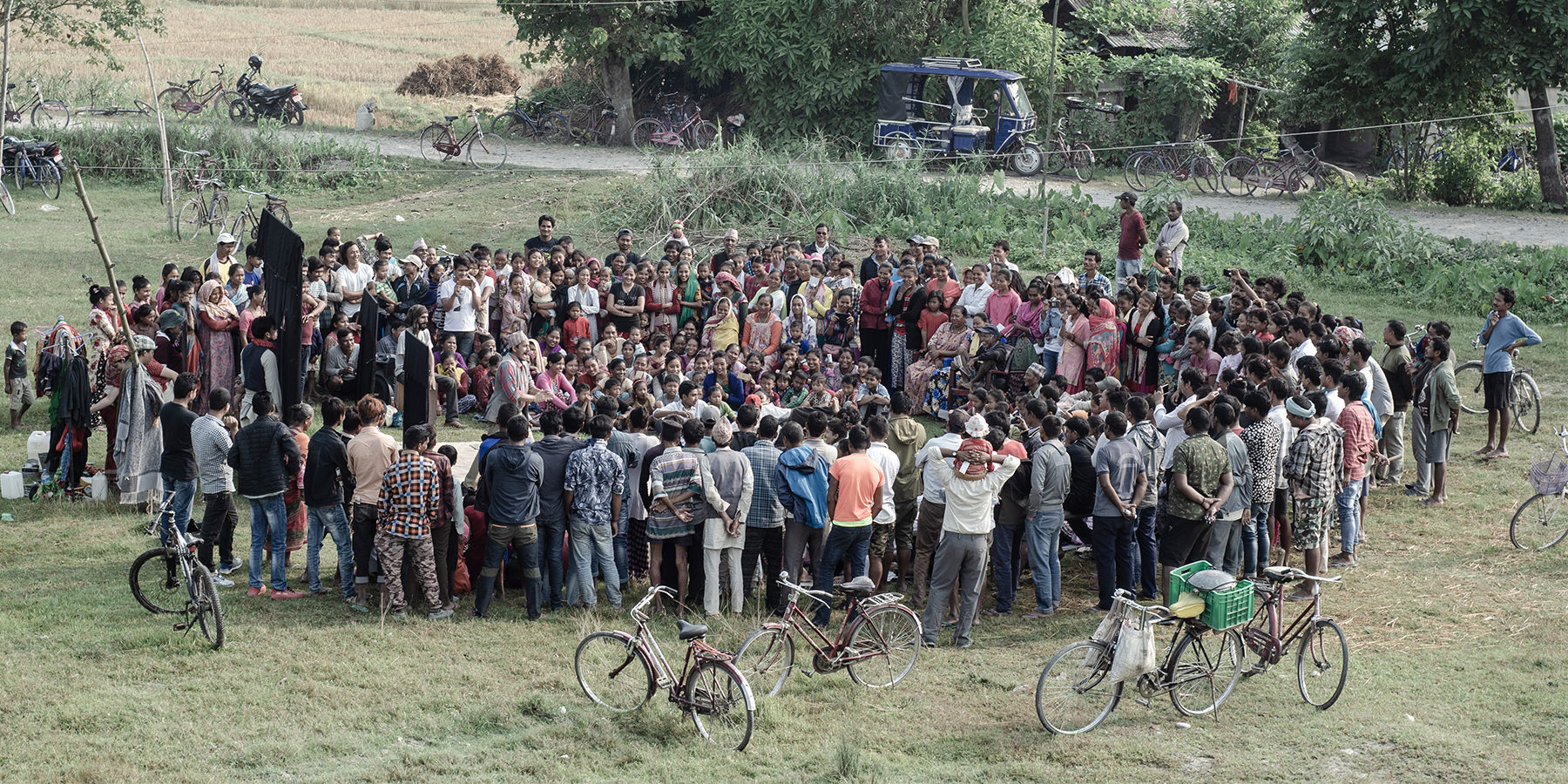



During the show and afterwards, many locals have shared their positive experiences and insights on how they should be dealing with social issues. In some cases, community members eagerly shared their personal stories and expressed how much they could relate to the characters in the drama. They also expressed their willingness to now question discriminatory norms and violence when they witness them.
Janak Raj Pant, the Chief District Officer of Jajarkot, praised the whole team for portraying the issues so well and went on to explain which offices to contact to seek justice for each of the cases depicted in the show.
[The play] has shed light on the realities of rural lives. Gambling, violence against women, alcohol consumption, and much more were presented in a very life-like manner. The incidents depicted not only shine the light on the realities, but also raise a lot of questions. We are very grateful to the team. All of us should raise our voice against such social evils.
Officials suggested that the drama should also be shown in other areas and communities of Nepal too. Some communities have also asked for Ghimire and the group to return.
“When people say ‘please come again’, that is when you know it was worth it,” says Ghimire.
“If the people want us, there is no greater beautiful thing. It is so unique, but it is so important. Something new to these communities. It gives light to them. This was an education for me.”

About the project
The ‘Modernization and improvement of policing project’ (MIPP) – funded by the United Kingdom’s Foreign, Commonwealth and Development Office (FCDO) and implemented by UNOPS – aims to strengthen access to security and justice for the most vulnerable people, by improving police services and building or upgrading police stations.
The project is part of a broader government of Nepal and FCDO initiative – the 'Integrated programme for strengthening security and justice in Nepal' – which aims to improve security and access to justice for poor and traditionally excluded people, especially women and girls.
Following the 2015 earthquake, the project expanded its focus to include more areas that were severely affected – adding nine new locations in earthquake affected districts to the originally planned 20 buildings. Later 29 new buildings were added as part of Segment 2 and 3. So far, a total of 30 new buildings have been completed and another 28 are under construction, mostly in remote rural towns. Many of the buildings being replaced had been destroyed during the decade-long conflict in the country that ended in November 2006.









